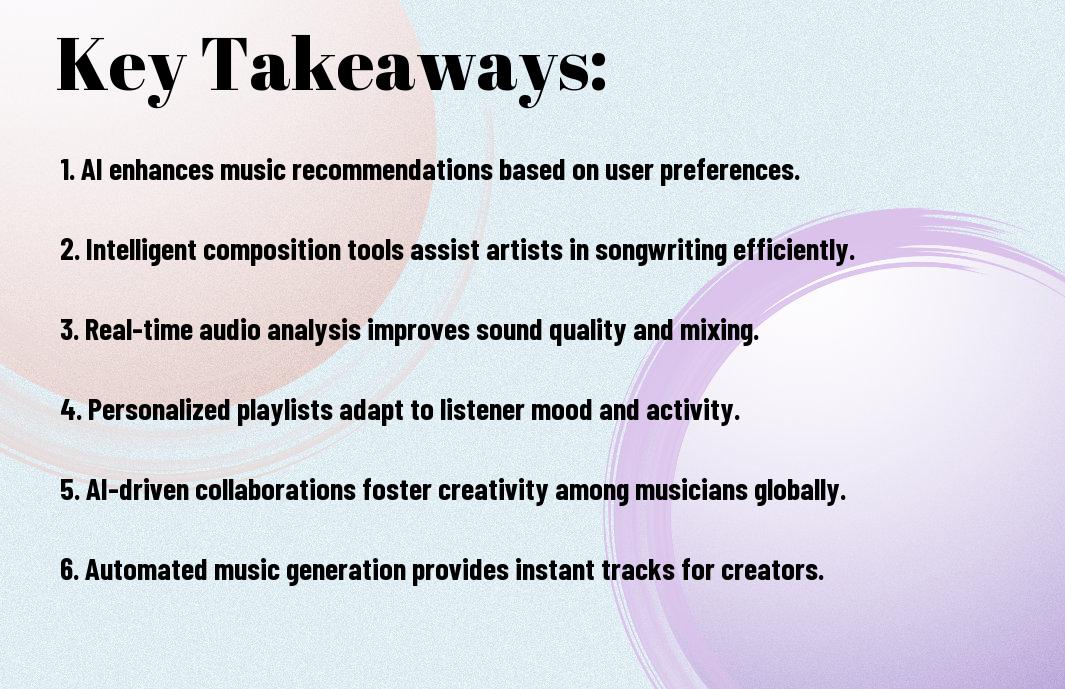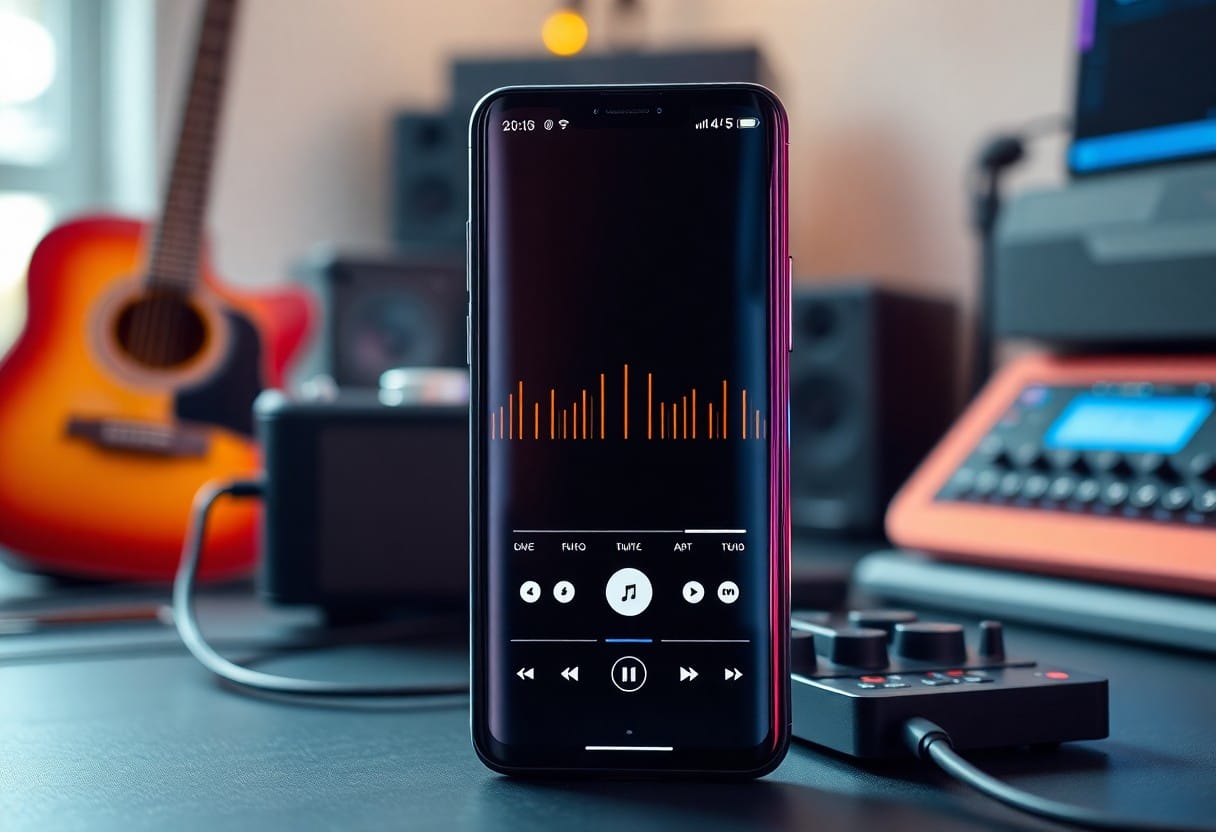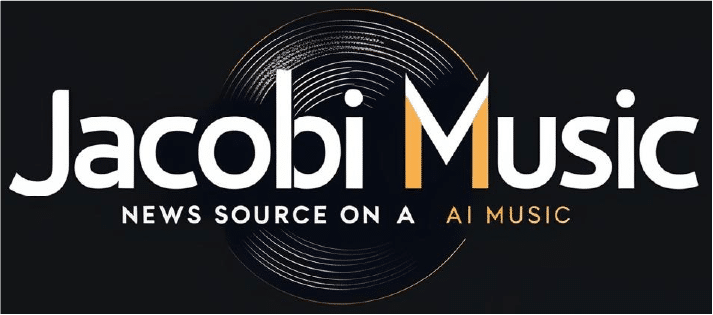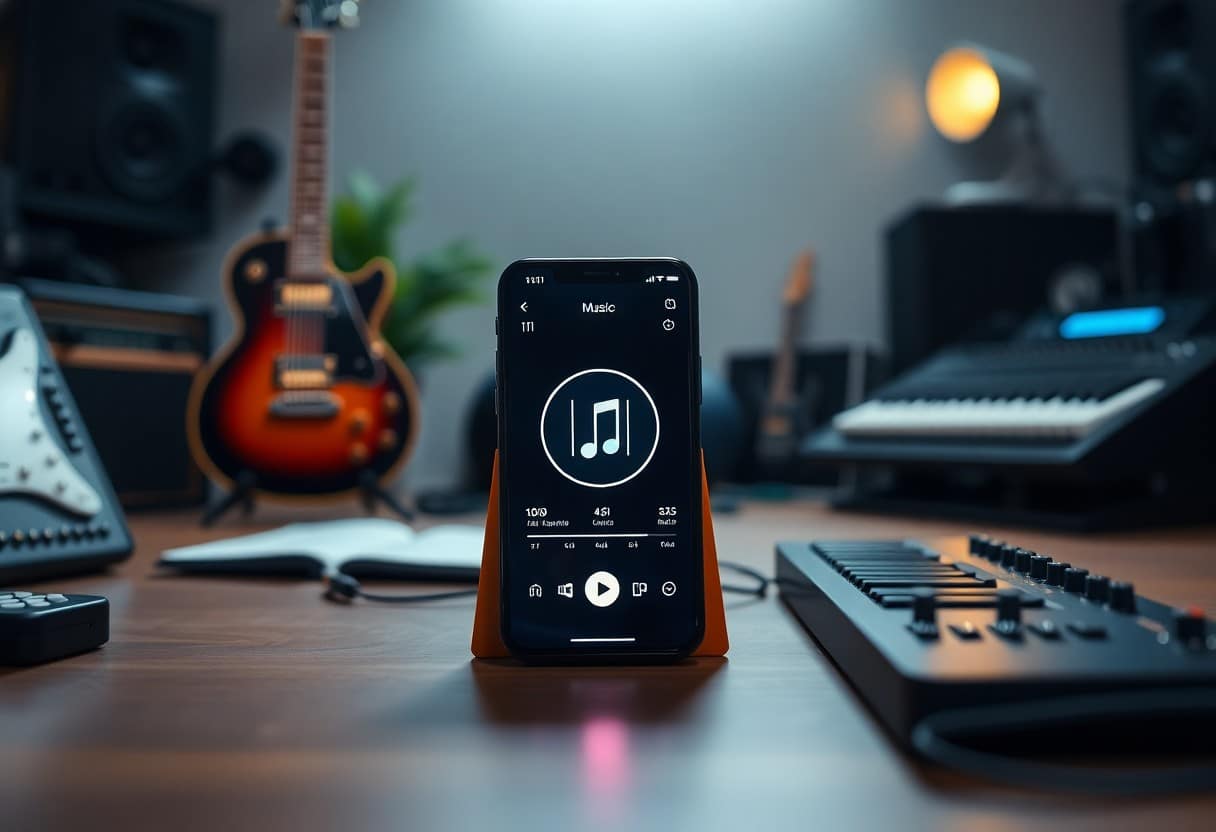Most people might not realize how much artificial intelligence is transforming our musical experience. In this blog post, I will explore the innovative ways AI is powering music apps, from personalized playlists to smart composition tools. If you’re a music lover or creator, understanding the role of AI can significantly enhance your listening and creating experience. Join me as I probe the exciting features and benefits that AI brings to the world of music applications.
Overview of AI in Music Apps
AI technology has transformed the landscape of music apps, providing innovative tools that enhance the creative process, personalize user experiences, and streamline music production. By integrating machine learning algorithms and data analysis, these applications cater to both amateur musicians and seasoned professionals. As I explore the impact of AI in this field, I’ll highlight its functions and capabilities that make music creation and curation more accessible and efficient.
Definition of AI in Music
Definition of AI in music refers to the incorporation of artificial intelligence technologies to create, analyze, and manage music. This involves the use of algorithms and data-driven techniques that allow applications to understand patterns, generate compositions, and personalize content based on user preferences. In my view, AI in music fundamentally shifts how we interact with sound, providing tools that were once beyond reach for many.
Evolution of AI Technology in Music
Before diving deeper into the specifics, it’s important to consider the evolution of AI technology in music. The journey began with basic algorithmic compositions that paved the way for more complex and nuanced systems we see today. From early rudimentary systems to advanced neural networks, AI’s role has expanded significantly over the years, allowing for genre-specific composition and real-time sound analysis.
Understanding the evolution of AI technology in music gives us a clear view of how far we’ve come. Early programs were limited to straightforward tasks, but advancements in machine learning and deep learning have introduced sophisticated models capable of generating original pieces that mimic human creativity. In my experience, these developments have not only expanded musical possibilities but have also reshaped how artists collaborate with technology, transforming the creative landscape entirely.

Key Features of AI-Powered Music Apps
Clearly, AI-powered music apps come equipped with a variety of innovative features that enhance user experience and streamline music creation. Some key features include:
- Personalized Music Recommendations
- Intelligent Composition Tools
- Automated Mixing and Mastering
- Real-time Feedback and Suggestions
- Music Collaboration Platforms
- User-Friendly Interfaces
Any aspiring musician or music enthusiast can explore more about the future of music technology by checking out 10 AI Music Generators for Creators in 2025.
Personalized Recommendations
On the user-centric side, AI-powered music apps leverage algorithms that analyze your listening habits and preferences to offer personalized song and playlist recommendations, making it effortless for you to discover new music tailored to your tastes.
Intelligent Composition Tools
Along the lines of innovation in music creation, these apps employ advanced AI algorithms that assist you in the composition process, generating chord progressions, melodies, and even lyrics based on your input and style choices.
It’s fascinating to see how intelligent composition tools operate by learning from vast databases of existing music to provide you with unique suggestions that align with your artistic vision. This not only streamlines the creative process but also fosters experimentation—allowing you to explore new sounds and structures that you may not have considered. With these tools, the possibilities for creating original music are virtually endless.
The Impact of AI on Music Creation
All musicians are witnessing a significant transformation in the way music is created, thanks to artificial intelligence. AI technologies are enabling composers to explore new sounds, generate innovative melodies, and improve the overall production process. This evolution not only enhances creativity but also streamlines workflows, allowing artists to focus on their unique vision while harnessing the powerful tools that AI offers. As a result, the future of music creation is brighter, with endless possibilities on the horizon.
Collaboration Between Musicians and AI
Impact has been a game-changer in the way musicians collaborate with technology. Artists can now partner with AI algorithms to create unique soundscapes, experiment with different genres, and push the boundaries of their creativity. This collaboration fosters an environment where inspiration flows freely, as musicians integrate AI-generated suggestions into their compositions, shaping a new era of artistic expression.
Accessibility for Aspiring Artists
Between the rise of AI-powered tools and the democratization of music production, aspiring artists can now access resources that were once limited to industry professionals. The availability of affordable AI-driven music apps empowers you to create high-quality tracks without extensive training or expensive equipment, leveling the playing field for new talent. As a result, the music industry is opening up like never before, inviting diverse voices and innovative ideas.
For instance, platforms like Amper Music and AIVA provide intuitive interfaces that allow you to compose original music in minutes. By leveraging AI-generated suggestions, you can refine your style without needing a traditional background in music theory. Additionally, numerous tutorials and resources are available online to guide you through using these tools effectively, making it easier than ever to share your art with the world. This newfound accessibility is not only reshaping how music is created but also nurturing a broader range of sounds in the industry.

Ethical Considerations in AI Music
Many discussions surrounding AI in music highlight ethical considerations, particularly as AI-generated compositions become increasingly prevalent. The intersection of technology and artistry necessitates a thorough evaluation of the implications for creators, audiences, and the industry at large. As we explore AI’s capabilities, it becomes vital to examine the moral responsibilities that come with harnessing these powerful tools in music creation.
Copyright Issues
On the topic of copyright, the rise of AI in music generation raises complex questions about ownership and intellectual property rights. When an AI creates a new composition, I often wonder who holds the copyrights: the developers of the AI, the users, or perhaps no one at all. This ambiguity presents challenges in ensuring that artists are fairly recognized and compensated for their creative work.
The Role of Human Creativity
Around the conversation of AI-generated music, it’s crucial to acknowledge the indispensable role of human creativity. While AI can produce music with remarkable efficiency, it cannot replicate the emotional depth and unique perspective that human artists bring. The nuances of cultural context, personal experiences, and individual expression remain areas where human creativity excels, and I believe this partnership between AI and human musicians can lead to exciting innovations.
Another aspect to consider is that human creativity not only enhances AI-generated music but also shapes its applications. Musicians can use AI as a collaborative tool, blending their artistic vision with AI’s capabilities. This synergy fosters new genres and soundscapes, pushing the boundaries of traditional music while retaining the essence of human expression. As I explore the future of music, I view this collaboration as an opportunity to celebrate both technological advancements and the irreplaceable human touch in artistry.
Case Studies of Successful AI Music Apps
To highlight the potential of AI in music applications, I have examined a variety of successful case studies that showcase its capabilities:
- Amper Music: Composes and customizes music with an interface that allows users to select mood and instruments, resulting in over 25 million songs generated to date.
- Aiva: This app creates emotional soundtracks for films and games using deep learning, serving over 70,000 users worldwide and aiding in the creation of more than 100,000 musical pieces.
- Endlesss: A collaborative music creation app that allows real-time interaction among musicians, it boasts a user community of over 10,000 active contributors.
Popular Examples in the Market
For anyone interested in the intersection of AI and music, there are notable apps that stand out. Platforms like Amper Music and Aiva have established themselves as leaders, proving the viability of AI-generated compositions while allowing users to engage in creative processes.
User Experiences and Outcomes
Popular apps like Endlesss demonstrate how AI can enhance user collaboration, providing tools that facilitate collective creativity and engagement among musicians of all skill levels.
Considering my experiences and the feedback I receive from users, many find that AI music apps allow for a new level of creativity. Users appreciate the ability to experiment with music production without needing formal training, identifying these platforms as supportive environments to explore their musical ideas. Additionally, many report that the ease of use and instant feedback encourages them to produce more content than they would typically attempt. This significantly transforms how users interact with music creation and consumption, making it more accessible and enjoyable.
Future Trends in AI Music Technology
Despite the rapid advancements in AI music technology, the future holds even greater promise. As machine learning algorithms continue to develop, we anticipate an era of personalized music experiences that resonate deeply with individual listeners. These technologies could revolutionize the way we produce, consume, and interact with music, making AI an integral part of our musical journey.
Predictions for Innovation
By leveraging advancements in AI, I predict we’ll see a significant surge in innovative tools that enhance music creation and curation. These tools will allow musicians to explore new genres, collaborate seamlessly, and reach wider audiences, ultimately elevating the overall artistry and diversity in music.
Potential Challenges Ahead
Below the surface of innovation, AI music technology faces challenges that need addressing. Issues such as copyright concerns, ethical considerations, and the quality of AI-generated music are aspects that require careful navigation to ensure a balanced ecosystem for creators and consumers alike.
Music remains a deeply personal and emotive medium, and as AI takes on more creative roles, there are inherent risks. One concern is the potential for a diluted artistic expression; as algorithms generate tracks, they may lack the nuanced human touch that makes music so relatable. Additionally, you may encounter questions about ownership of AI-generated works, which could create tension within the music community. As we move forward, it’s important to engage in conversations around these challenges to foster a thoughtful and ethical approach to AI in music.
Summing up
Hence, as I explore AI-powered music apps, I find them to be transformative tools that enhance my musical experience. These apps intelligently analyze my preferences, allowing me to discover new genres and artists tailored specifically to my tastes. I can easily create personalized playlists, access advanced music recommendations, and even engage in collaborative creations with others. As AI continues to evolve, I believe these applications will further enrich my connection to music, making it more accessible and enjoyable for you as well.

